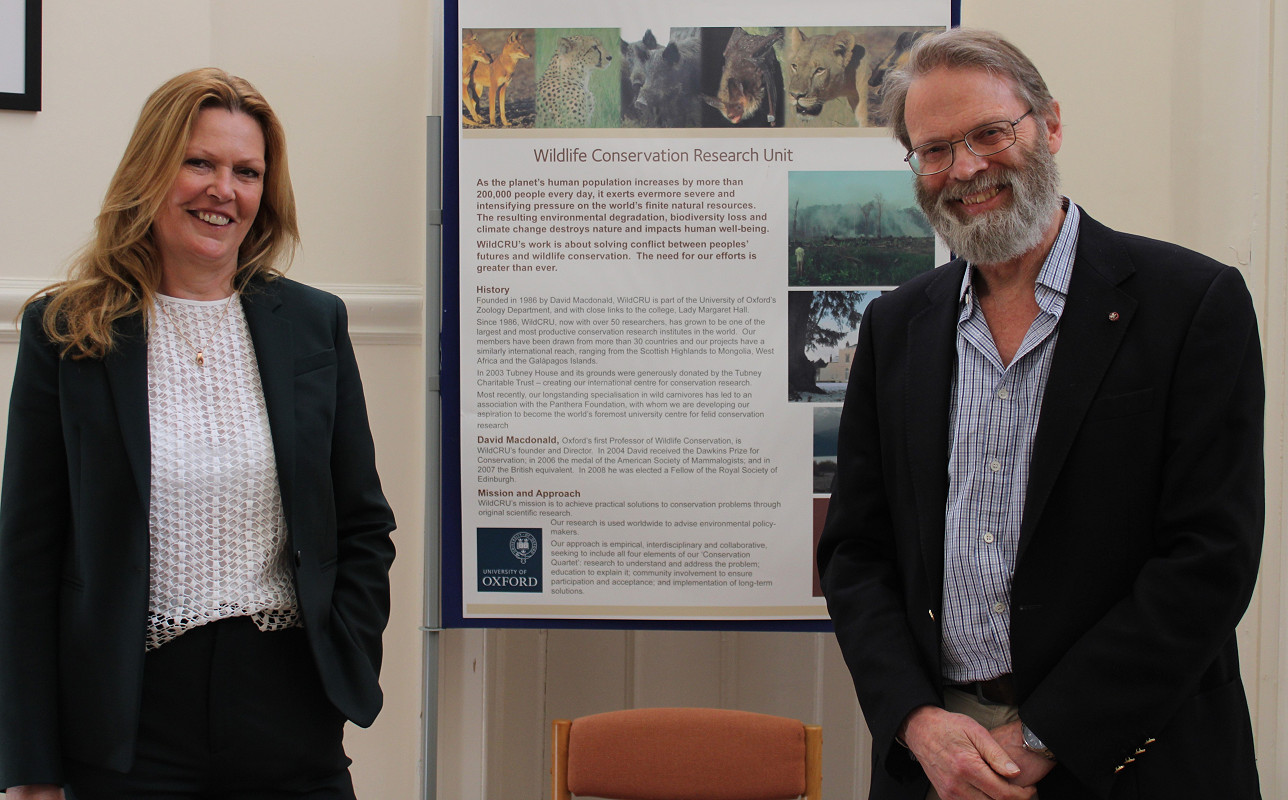The Turner-Kirk Fellowship Programme | Turner Kirk Trust

Founded in 1860, the Department of Zoology at the University of Oxford is a world-leading research centre focused on the biological study of animals. Today, The Department encompasses 60 academic staff and research fellows, 100 researchers and 160 graduate students. Its research spans all aspects of Zoology, from molecules to ecosystems. The Department aims to tackle fundamental problems in disease biology, evolutionary mechanisms, conservation biology, biodiversity, evolutionary developmental biology and animal behaviour.
The worldwide population increases by 200,000 people every day. With each passing year, human beings continue to put more and more strain on our finite natural resources. Over the last four decades, human activities have resulted in the loss of around 10,000 animal species per year, totalling the loss of half of the world’s wildlife population.
Environmental degradation, biodiversity loss and climate change will all have dire consequences widespread, global action is not accelerated. Even the loss of just one species can dramatically alter an ecosystem, threatening other animals and potentially hampering our own water and food supplies.
Preserving and cooperating with other animal species is vital to our own, and our planet’s continued survival. Our rates of consumption are unsustainable, and we place ever-increasing pressure on the natural world.
The Turner-Kirk Fellowship Programme was launched at the University of Oxford in 2013 through a £500,000 gift by the Turner Kirk Trust. Spanning five years, the donation supported a wide spectrum of zoological research projects across Africa and South-East Asia, with the aim of addressing some of the most pressing needs in conservation and biodiversity.
The Fellowship supported research that was not only focused narrowly on understanding and addressing conservation problems but also on how to effectively explain the importance of biodiversity and engage local communities.
These sustainable solutions built on data collected each year, compounding and increasing its value with each year the research was carried out. The project’s aim is to provide long-term, holistic solutions to intractable biodiversity problems by creating a global network of interdisciplinary researchers.
From 2013 to 2018, the Turner-Kirk Fellowship Programme has supported 15 research projects, spanning 10 geographical areas across three separate continents, bringing some of the brightest and best conservationists to Oxford. One of the key focuses of the scholarship was to appoint a wide and diverse range of scholars from around the world in pursuit of further global collaboration which is vitally needed.
As such, the project has worked with 26 researchers from 20 different nationalities. Turner-Kirk Fellows supported by the programme included Susana Rostro-Garcia (Venezuela), Iding Achmad Haidir (Indonesia), Akchousanh Rasphone (Laos), Eric Ash (Thailand), Mohammad Farhadinia (Iran), Lovemore Sibanda (Zimbabwe), Matt Wijers (South Africa), Dominik Bauer (Botswana), Guy Western (Kenya), Holly O’Donnell (USA) and Tlamelo Matsog (Botswana).
The majority of the research conducted by the fellows on the programme involved large carnivores, such as lions, tigers, leopards and bears. The aim of the programme was to find solutions for when these animals find themselves in conflict with humans. Starting their research in South East Asia studying leopards, clouded leopards and tigers, through to Western Asia for Persian leopards, and finally to Africa, on lions and other large carnivores.
Turner-Kirk Fellows
2013-2018
Susana Rostro-Garcia
Iding Achmad Haidir
Akchousanh Rasphone
Eric Ash
Mohammad Farhadinia
Lovemore Sibanda
Matt Wijers
Dominik Bauer
Guy Western
Holly O’Donnell
Tlamelo Matsog